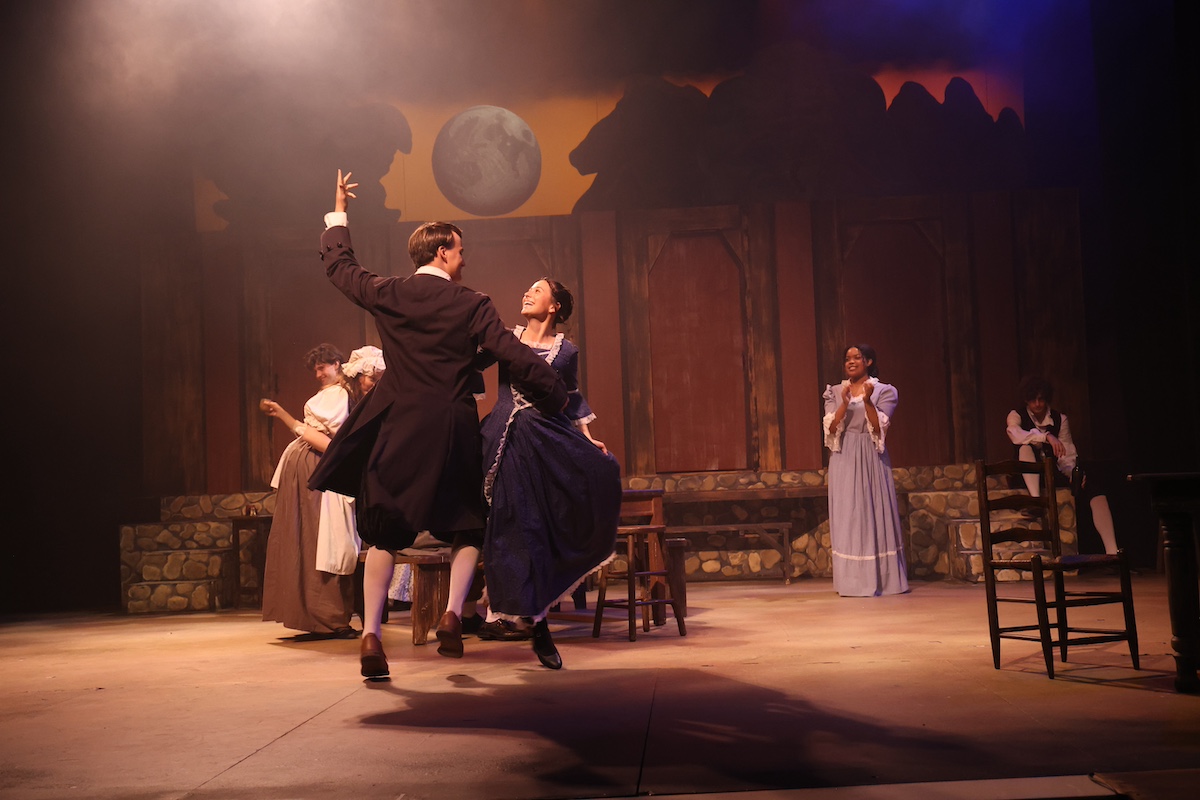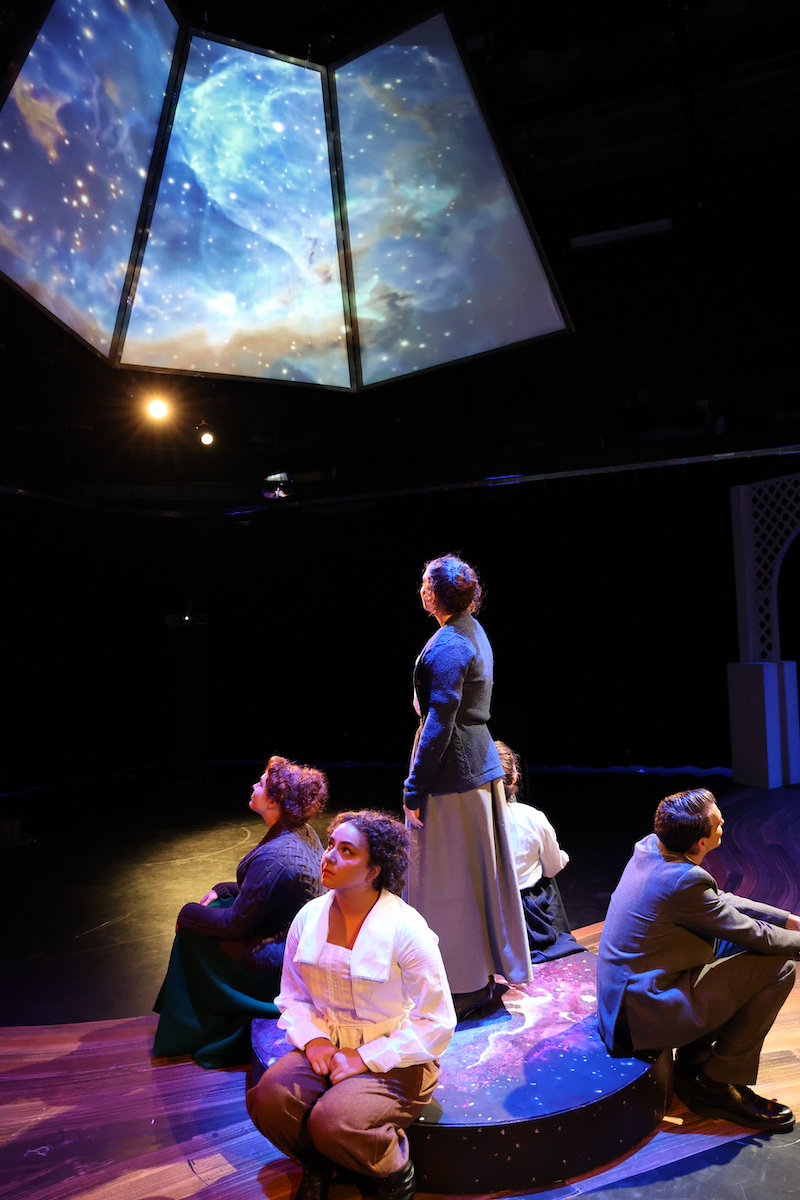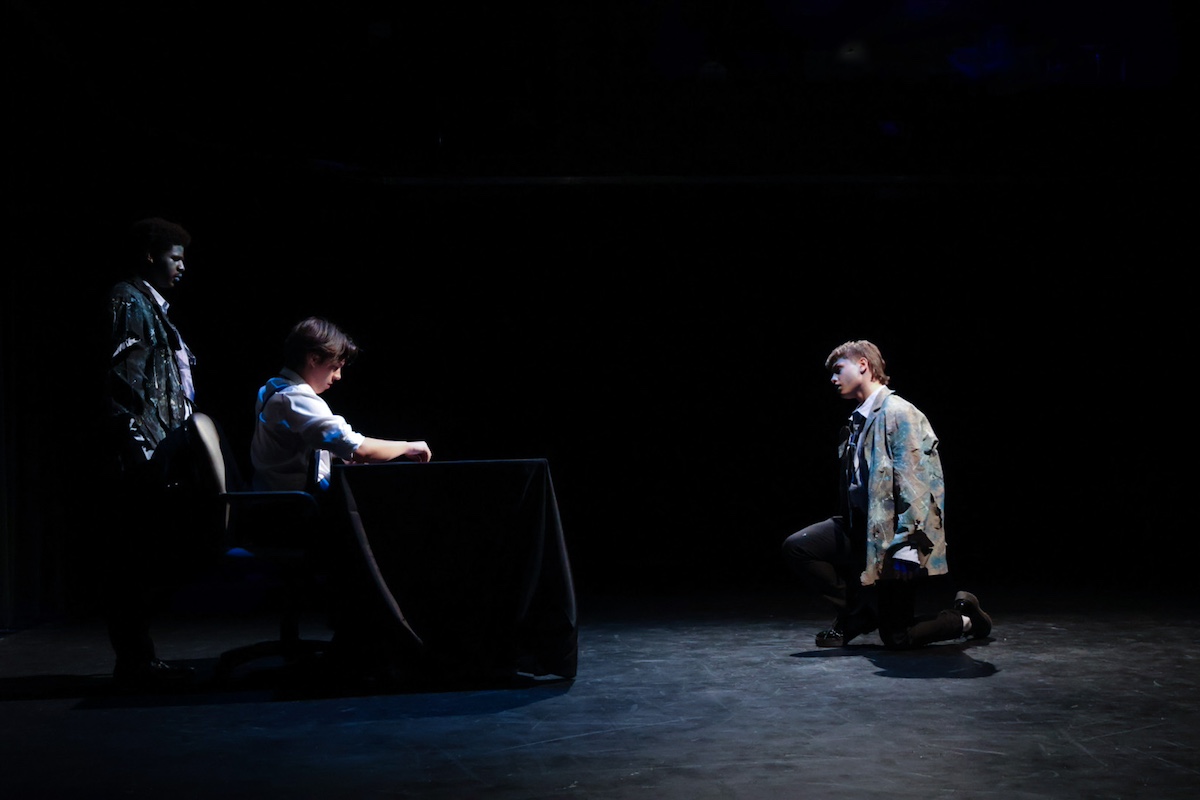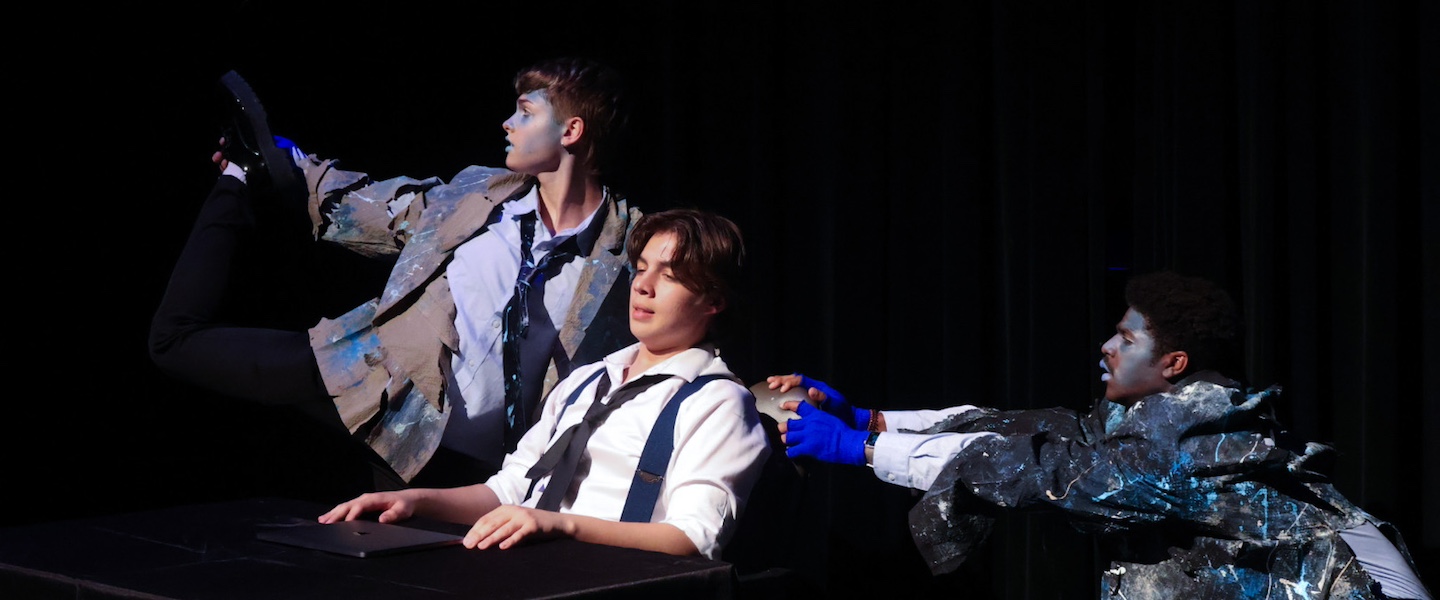Assistant Professor of Theatre Professor Traci Ledford’s path to theatre directing was one that started in early childhood. She recalls times in elementary school where she would host neighborhood talent shows or lie in the grass dreaming up new stories and how she would stage them. Her early fascination with transformative storytelling forged her passion for directing, her experiences now fueling her teaching in Belmont’s Theatre Directing program.
 “I loved directing because it afforded me the opportunity to tell stories on my own terms,” explained Ledford. “It’s hard to put into words, but when I read a script I connect with, I can both see and hear iconic moments of the finished product. The fun becomes fleshing out how to connect the dots and bring the entire story to life.”
“I loved directing because it afforded me the opportunity to tell stories on my own terms,” explained Ledford. “It’s hard to put into words, but when I read a script I connect with, I can both see and hear iconic moments of the finished product. The fun becomes fleshing out how to connect the dots and bring the entire story to life.”
Senior theatre directing major Nora Jones found her love for directing in a similar way. Growing up in a family that heavily supported the arts, Jones explained that she’s unintentionally been part of theatre for as long as she can remember. However, she didn’t always know that theatre directing was the path she would follow.
Originally entering the College of Music and Performing Arts as a music therapy major, Jones had the opportunity to direct a production of “The 25th Annual Putnam County Spelling Bee” with Curtains Up in her sophomore year, there finding her passion for directing that would change the trajectory of her career forever.
 Collaboration from Page to Stage
Collaboration from Page to Stage
Collaboration between students and faculty is at the core of Belmont’s theatre directing program. For Ledford, “there will always be collaborators who make an experience beautifully memorable.” As a director, her favorite memories come from working with those who radiate gratitude for the experience, generously giving themselves to the art out of “compassion for and curiosity about the human race.”
Jones explained that curiosity for the human race greatly influences her directing style. “I wish to promote dialogue across all beliefs, all walks of life, because I hope that I can tackle those conversations in an emotional way that provokes conversation,” Jones said. “I think that in my directing that is why I deal so heavily with the idea of expressionism and turning internalized emotion outward.”
The sticky spots of internalized emotions and the grey areas of the human experience are where Jones thrives as a storyteller. “No person is innately good or evil, so why would we portray a character with such constraints? The ‘sticky spots’ are what keep theatre both relevant and necessary. Art imitates life. We need art to help us digest and reflect on the hardships of reality.”
Transforming Stories: Exploring All Genres
Within the program, theatre directing students have opportunities to direct both one-act junior short plays and full-length senior productions. Students also must serve as assistant stage managers, stage managers, dramaturgs and assistant directors to expose them to a range of theatre positions and the work that encompasses each.
 Jones explained her favorite genres to work in are expressionism and theatre of the absurd. In her junior year, she brought a devised piece exploring the personification of anxiety to the Black Box Theater stage. Reflecting on the experience, she explained, “It was hard to let go of control and let my actors take the reins, but it was so rewarding. It was challenging but really helped me learn how to trust the process as a director.”
Jones explained her favorite genres to work in are expressionism and theatre of the absurd. In her junior year, she brought a devised piece exploring the personification of anxiety to the Black Box Theater stage. Reflecting on the experience, she explained, “It was hard to let go of control and let my actors take the reins, but it was so rewarding. It was challenging but really helped me learn how to trust the process as a director.”
Challenges such as these are fundamental to the theatre directing program. “Students explore all elements of the theatre,” said Jones. “Belmont allows students to explore their craft in a collaborative and encouraging environment,” with faculty and professors there for you every step of the way.
Why Choose Belmont for Theatre Directing?
Built on foundations of collaboration, curiosity, authenticity and honesty, the program equips students to navigate both the joys of directing and its inevitable trials with skillful knowledge and grace.
Ledford explained “there is an energy at Belmont that other places don’t have: a generosity towards the arts and the art makers. I feel like, at Belmont, I am part of something very special, where the administration, faculty, staff and students are all striving for excellence, but this work is coupled with compassion and grace. This is both rare and beautiful.”
Learn more about the program in this story

